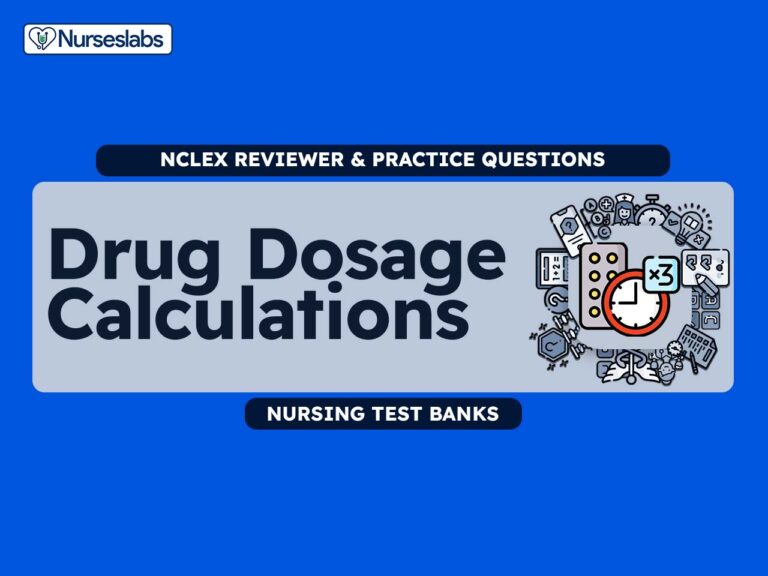

Welcome to your NCLEX reviewer for nursing drug calculations! In this nursing test bank, practice dosage calculation problems to measure your competence in nursing math. As a nurse, you must accurately and precisely calculate medication dosages to provide safe and effective nursing care. This quiz aims to help students and registered nurses alike grasp and master the concepts of medication calculation.
In this section are the practice problems and questions for nursing dosage calculations. This nursing test bank set includes 100+ questions. Included topics are dosage calculation, metric conversions, unit conversions, parenteral medications, and fluid input and output. As you can tell, this NCLEX practice exam requires tons of calculations, so get your calculators ready!
Remember to answer these questions at your own pace, and don’t forget to read the rationales! Don’t be discouraged if you have incorrect answers. You are here to learn! Make sense of the rationales and review the drug dosage calculations study guide below.
Quiz Guidelines
Before you start, here are some examination guidelines and reminders you must read:
Quizzes included in this guide are:
| Quiz No. | Quiz Title | Questions |
|---|---|---|
| Dosage Calculations Nursing Test Banks | ||
| 1 | NCLEX Dosage Calculation Practice Exam | 25 |
| 2 | Drug Dosage Calculations: Oral Medications Practice Exam | 20 |
| 3 | Drug Dosage Calculations: Oral Medications Challenge Exam | 20 |
| 4 | Drug Dosage Calculations: Parenteral Medications Practice Exam | 25 |
| 5 | Drug Dosage Calculations: Parenteral Medications Challenge Exam | 25 |
| See also: Intravenous Medication Dosage Calculation | ||
| See also: IV Flow Rate Calculation Practice |
This is your study guide to help you refresh or review what you know about drug dosage calculations, including tips on answering them.
NCLEX Tips for Dosage Calculation Questions
Nursing Responsibilities for Medication Administration
Systems of Measurement
Converting Units of Weight and Measure
| Unit | Equivalents |
|---|---|
| Metric system | Equivalents |
| 1 microgram (mcg) | 0.000001 g |
| 1 milligram (mg) | 0.001 g or 1000 mcg |
| 1 gram (g) | 1000 mg |
| 1 kilogram (kg) | 1000 g |
| 1 kilogram (kg) | 2.2 lbs |
| 1 milliliter (mL) | 0.001 L |
| Apothecary system (no longer used) | Equivalents |
| 1 grain (gr) | 60 or 65 mg |
| 5 grain (gr) | 300 or 325 mg |
| 15 grain (gr) | 1000 mg or 1g |
| 1/150 grain (gr) | 0.4 mg |
| Household system (volume) | Equivalents |
| 1 teaspoon (tsp) | 5 ml or 16 drops |
| 1 tablespoon (T) | 3 teaspoons or 15 mL |
| 1 fluid ounce (fl oz) | 2 tablespoons or 30 mL |
| 1 cup (C) | 8 fluid oz or 240 mL |
| 1 pint (pt) | 16 fluid oz or 480 mL |
| 1 quart (qt) | 2 pints or 946 mL or 32 fl oz |
| Household system (weight) | Equivalents |
| 1 pound (lb) | 16 ounce |
| 2.2 pounds (lbs) | 1 kilogram |
Methods for Drug Dosage Calculations
STANDARD FORMULA
Desired (D) = 500 mg
On hand (H) = 250 mg
Vehicle (V) = 5 mL
Computation:
\frac \times 5\ mL = 10\ mL
Answer: 10 mL
RATIO AND PROPORTION METHOD
Desired (D) = 750 mg
On hand (H) = 250 mg
Vehicle (V) = 1 capsule
Computation:
250 (H) : 1 (V) = 750 (D) : x
Multiply the extremes and the means:
Answer: 3 capsules
FRACTIONAL EQUATION METHOD
Desired (D) = 0.25 mg
On hand (H) = 0.125 mg
Vehicle (V) = 1 tablets
Computation:
Answer: 2 tablets
Recommended books and resources for your NCLEX success:
Disclosure: Included below are affiliate links from Amazon at no additional cost from you. We may earn a small commission from your purchase. For more information, check out our privacy policy.
Saunders Comprehensive Review for the NCLEX-RN
Saunders Comprehensive Review for the NCLEX-RN Examination is often referred to as the best nursing exam review book ever. More than 5,700 practice questions are available in the text. Detailed test-taking strategies are provided for each question, with hints for analyzing and uncovering the correct answer option.
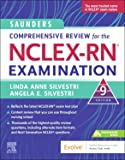
Strategies for Student Success on the Next Generation NCLEX® (NGN) Test Items
Next Generation NCLEX®-style practice questions of all types are illustrated through stand-alone case studies and unfolding case studies. NCSBN Clinical Judgment Measurement Model (NCJMM) is included throughout with case scenarios that integrate the six clinical judgment cognitive skills.
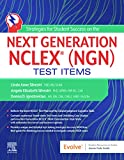
Saunders Q & A Review for the NCLEX-RN® Examination
This edition contains over 6,000 practice questions with each question containing a test-taking strategy and justifications for correct and incorrect answers to enhance review. Questions are organized according to the most recent NCLEX-RN test blueprint Client Needs and Integrated Processes. Questions are written at higher cognitive levels (applying, analyzing, synthesizing, evaluating, and creating) than those on the test itself.
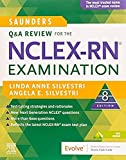
NCLEX-RN Prep Plus by Kaplan
The NCLEX-RN Prep Plus from Kaplan employs expert critical thinking techniques and targeted sample questions. This edition identifies seven types of NGN questions and explains in detail how to approach and answer each type. In addition, it provides 10 critical thinking pathways for analyzing exam questions.
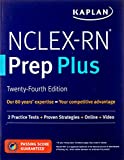
Illustrated Study Guide for the NCLEX-RN® Exam
The 10th edition of the Illustrated Study Guide for the NCLEX-RN Exam, 10th Edition. This study guide gives you a robust, visual, less-intimidating way to remember key facts. 2,500 review questions are now included on the Evolve companion website. 25 additional illustrations and mnemonics make the book more appealing than ever.
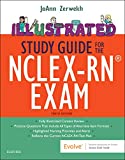
NCLEX RN Examination Prep Flashcards (2023 Edition)
NCLEX RN Exam Review FlashCards Study Guide with Practice Test Questions [Full-Color Cards] from Test Prep Books. These flashcards are ready for use, allowing you to begin studying immediately. Each flash card is color-coded for easy subject identification.
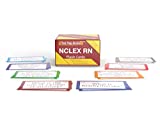
An investment in knowledge pays the best interest. Keep up the pace and continue learning with these practice quizzes:
Paul Martin R.N. brings his wealth of experience from five years as a medical-surgical nurse to his role as a nursing instructor and writer for Nurseslabs, where he shares his expertise in nursing management, emergency care, critical care, infection control, and public health to help students and nurses become the best version of themselves and elevate the nursing profession.
I agree, negative remarks are unnecessary, especially when the time has been taken to make this information available to us. Reply
Hey, you can always correct/point out people’s mistakes politely, no need to be an ass about it. Being a nurse and having a bachelors degree does not mean one has to be perfect (unless you’re perfect? lol). I can imagine what kind of ‘nurse’ you are/will be. Your lack of manners makes me cringe. Reply
I had my first experience working with RNs through the covid times and the person I worked with and trained me was like that he wanted or expected me to think like him and do everything like him and if I would ask him a question to confirm he would say things like “didn’t I explain that already or something like a smart allic ” trust me I am very proud not to have punched him all of these times but he was harmless in nursing there are just those people that don’t think about others and just expect you’re like them or if your not your below them which is unfortunate! I learned how not to be and how to act I would even help the new RNs once I was concerned not new and I would be determined not to treat anyone how I was treated I don’t think it was A RN thing it was either you on his level or not so after I was comfortable I started going off on him bickering back and forth but he had to know I am not the one and I was new so I let it slide but don’t make those mistake anymore! he would sabotage me I have to admit he did it a way that no one knew very smart which means he’s a sneaky snake and worst everyone loved him that’s why I didn’t say anything day one I knew this and It worked and I was fired! it was a temp job so no big deal but I learned how to deal with co-workers like this are out there and look out and management I knew would be no help but I did tell them but they cared less just like I thought how do you take reports on my training from the person who is training me is not training me so if I don’t know how to do something I get blamed for it?! wtf 2+2 is=4 so why don’t they get that and blame me not him! bs With that said as nurses let us pull each other up we have enough to deal with that can make us feel we can be at our lowest we don’t need a coworker to speed up the process let’s do better Reply
Don’t dwell on it, especially on people not worthy of your heart or mind. Resiliency is key. Also justifying your reason doesn’t take away from the point that other people might not ever understand your reasons for your actions, especially if they don’t understand why you did it in the first place. Reply